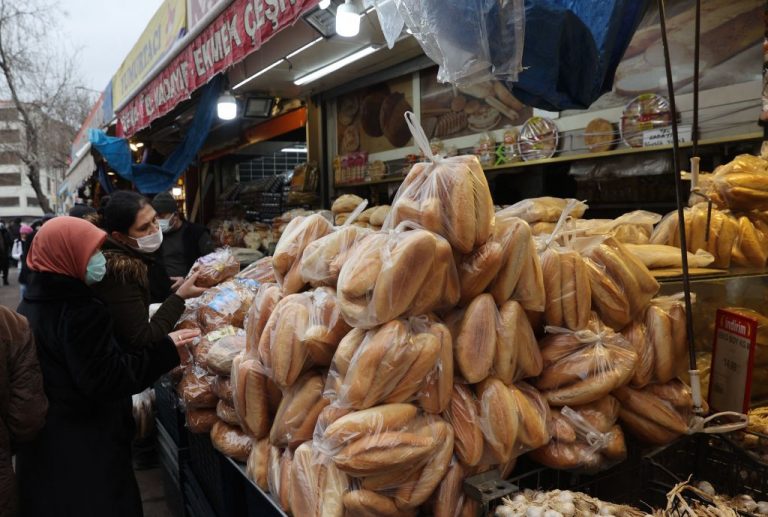Turkish citizens are reeling under the pressure of inflation and what many believe is President Recep Tayyip Erdogan’s incompetent way of dealing with the dilemma. Just a year ago, many citizens were living a life with normal wages. Now, the same people are struggling to make ends meet and are worried about future finances.
According to Turkey’s official data, prices have risen by 21 percent during the last year. Since January, the lira, the country’s national currency, has lost 50 percent of its value. That has also contributed to making the prices of daily necessities expensive. In many households, families have tried to adapt by eating less and have cut down their children’s allowances, for example.
A carton of eggs has jumped in price by 60 percent within a week at a store in the capital city of Istanbul. Red meat is now seen as a luxury item by many. In neighborhoods, people are lining up at government stores to buy cheap bread.
This has even affected bakery owners who are seeing fewer sales, forcing many towards closure. Rent prices have gone up and have taken a chunk from other essential expenses like food budgets.
In an interview with The New York Times, 33-year-old Bilal, who has a wife and three children, said that life was good until recently. Burdened with a car loan, mortgage, and the responsibility of having to feed the entire family, Bilal is now finding it difficult to maintain a decent standard of life.
Success
You are now signed up for our newsletter
Success
Check your email to complete sign up
“Up until 2020, I can say life was beautiful… Yes, I had debts, but I could pay them… In the last seven to eight months, I really feel the economy is wearing me down,” Bilal told the media outlet. He refused to give his full name for fear of retaliation from the autocratic Turkish leadership that is known to put critics into jail.
Meanwhile, Erdogan has stuck to his economic policies. He insists that they are compliant with Islamic practices and has promised citizens that everything will soon be back to normal. In a recent televised address, the president announced that minimum wages across the country will be raised by 50 percent next year, the highest minimum wage in the nation in the last five decades.
“We are determined to put an end to the uncertainty that has arisen with the recent fluctuations in the exchange rate and the exorbitant price increases as soon as possible… We will determine the future of this nation together with its men and women, young and old, workers and employers,” Erdogan said.
However, the president’s opponents and several economic experts are consistently complaining about his flawed policies. Some accuse the official rate of inflation as reported by the government, which is at 21 percent, to be inaccurate. Instead, the magnitude of the price increase is said to be much higher. According to a report by independent inflation research group ENAG, Turkey’s actual inflation rate is around 60 percent.
In an interview with Marketplace, Durmuş Yılmaz, who served as a Turkish central bank governor between 2006 and 2011, says that stimulating economic growth in the country requires two things.
“That is the price stability and the financial stability and the fair distribution of resources, and without doing this, I think the president is living in a different cosmos. Without achieving these necessary conditions, having a high rate of growth is not possible,” Yilmaz said.
International rating agencies have issued warnings about Turkey’s inflation. According to Moody’s, the country’s consumer price inflation (CPI) can exceed 25 percent in the coming months. By 2022 year-end, Moody’s predicts CPI to be at 17 to 18 percent.
Fitch revised its outlook on the country from “neutral” to “negative.” It forecasted the year-end inflation to be at 25 percent. Over the next two years, inflation is expected to average at 20 percent.
“Negative real rates, the absence of policy guidance, statements by government officials arguing for a weaker lira as part of an economic development strategy, and rising inflation and inflation expectations will maintain pressure on the currency,” Fitch ratings stated.
















